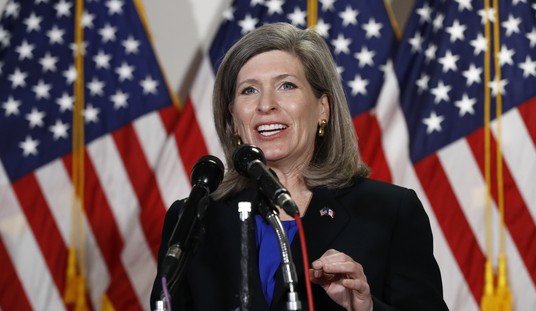Does it really take a poll for us to learn that social media stinks? Even the term itself is a contradiction, according to the results of the latest NBC/Wall Street Journal poll. While 59% of respondents think technology in general has more benefits than drawbacks, three-quarters of them say social-media platforms have too much influence over our lives and too much access to our private information.
That must be why the percentage of Americans using social media on a daily basis is only, er … sixty-nine percent:
The American public holds negative views of social-media giants like Facebook and Twitter, with sizable majorities saying these sites do more to divide the country than unite it and spread falsehoods rather than news, according to results from the latest national NBC News/Wall Street Journal poll.
What’s more, six-in-10 Americans say they don’t trust Facebook at all to protect their personal information, the poll finds.
But the public also believes that technology in general has more benefits than drawbacks on the economy, and respondents are split about whether the federal government should break up the largest tech companies like Apple, Amazon, Google and Facebook.
“Social media — and Facebook, in particular — have some serious issues in this poll,” said Micah Roberts, a pollster at the Republican firm Public Opinion Strategies, which conducted this survey with the Democratic firm Hart Research Associates.
Uh, cool story, sport:

Does that look like social-media platforms have a problem? Come on, man. Some of us don’t use roads on a daily basis, or even televisions … but we’re on our smartphones throughout dinner catching up on everyone’s status updates.
The poll divides technology in general from social media, and so do respondents … in theory. In practice, they disparage social media but flock to it at the same level as their general enthusiasm for technology. The level of daily engagement looks even more remarkable when one sees that eighty-two percent of respondents consider social media a waste of time. Six in ten blame social media for spreading “unfair attacks and rumors,” and nearly the same percentage accuses the platforms of spreading lies.
So why are we glued to it? I suspect that most people see themselves as virtuous actors in the online world and feel the need to engage daily because of all the bad actors. Someone’s wrong on the Internet, we say, and up with this we shall not put! It’s just another excuse to feed an addiction, which is what these platforms count on to keep users roped into the conversation. Where else do we go to get our fix for our Cats Who Look Like Hitler jones, for example? (Answer: Buzzfeed, but that’s not much of an improvement.)
Mark Zuckerberg and Jack Dorsey have few worries from this poll. Americans remain just as addicted to their product, and the flaws that get the most attention aren’t even truly related to the technology anyway. It’s not the algorithms that generate rumors, lies, unfair attacks, or other rhetoric that divides us. All the platforms do is to remind us why humans developed customs to limit social interactions with unpleasant people via reliable strategies connected to freedom of association. IRL, we can avoid the cretins. Online … not so much.
That lacuna might be the only true technological flaw on these platforms. That missing piece is instead being replaced by top-down efforts to control speech by the platform masters, a strategy designed for failure and breakdown. Maybe when Zuckerberg, Dorsey et al finally figure that out, we’ll find social media a more pleasant environment.
But we’ll still be there, nonetheless.







Join the conversation as a VIP Member